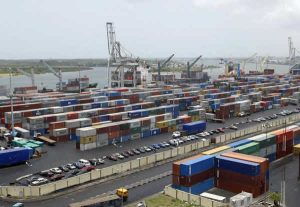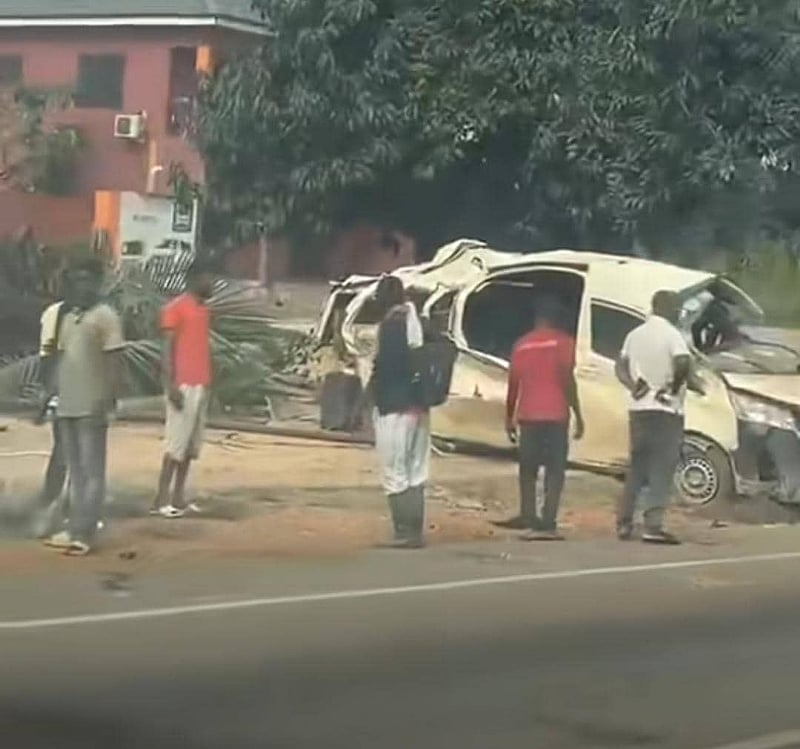The horrific bus accident involving a 2M Express bus on the Ejisu-Konongo road in Ghana’s Ashanti Region has cast a long shadow of grief and despair across the nation. The mangled remains of the bus, scattered debris, and the heart-wrenching cries of trapped victims paint a grim picture of the devastation. Preliminary investigations point to potential causes such as speeding, driver fatigue, and mechanical failure, highlighting the persistent challenges of road safety in the country. This tragic incident underscores the urgent need for comprehensive measures to address these recurring issues and prevent future tragedies. The scene was chaotic and emotionally charged, with rescuers working tirelessly to extract survivors from the wreckage. The accident serves as a stark reminder of the fragility of life and the devastating consequences of road accidents.
The rescue operation, a collaborative effort between the Ghana Police Service, Ghana National Fire Service, and local volunteers, was a race against time. Rescuers employed every means possible, from specialized cutting tools to their bare hands, to free those trapped within the twisted metal. The emotional toll on the rescuers was evident as they pulled both lifeless bodies and survivors clinging to life from the wreckage. The outpouring of support from the local community, who joined the rescue efforts and provided comfort to the injured, demonstrated the spirit of unity and compassion in the face of tragedy. The selfless acts of these individuals highlight the importance of community involvement in responding to such crises.
The injured were swiftly transported to nearby hospitals, including the Ejisu Government Hospital and the Komfo Anokye Teaching Hospital in Kumasi, where medical teams are battling to save lives. The capacity of these hospitals was stretched to its limits as they dealt with the influx of casualties, highlighting the need for robust emergency response systems and adequate medical resources to handle mass casualty events. The dedication and professionalism of the medical staff are commendable, as they work tirelessly to provide the best possible care to the injured. The long-term physical and psychological impact on survivors will undoubtedly be significant, requiring ongoing support and rehabilitation.
The Ejisu-Konongo highway, notorious for frequent accidents, has once again become the scene of a devastating tragedy. This recurring pattern raises serious concerns about the safety of this particular stretch of road and the broader issue of road safety in Ghana. Factors such as poor road conditions, inadequate signage, lack of enforcement of traffic regulations, and driver behavior all contribute to the high incidence of accidents. This tragedy underscores the urgent need for a comprehensive review of road safety measures, including stricter enforcement of traffic laws, improved road infrastructure, and public awareness campaigns to promote safe driving practices.
Authorities, including the National Road Safety Authority and the Ghana Police Service, have launched a full-scale investigation to determine the exact cause of the accident. The investigation will examine various factors, including the condition of the bus, the driver’s actions, and the road conditions at the time of the accident. Eyewitness accounts and survivor testimonies will be crucial in piecing together the sequence of events that led to the tragedy. A thorough and transparent investigation is essential not only to understand the immediate cause of the accident but also to identify systemic issues that contribute to road accidents and implement effective preventive measures.
The aftermath of the accident has left families grappling with unimaginable grief and loss. The emotional toll on the families of the deceased and the injured is immense, and they will require long-term support to cope with this tragedy. The government and relevant organizations should provide counseling services and financial assistance to help these families navigate the difficult days ahead. The accident serves as a somber reminder of the importance of road safety and the need for collective action to prevent future tragedies. The nation mourns the loss of lives and prays for the speedy recovery of the injured. This tragedy should serve as a catalyst for meaningful change and a renewed commitment to improving road safety in Ghana.














